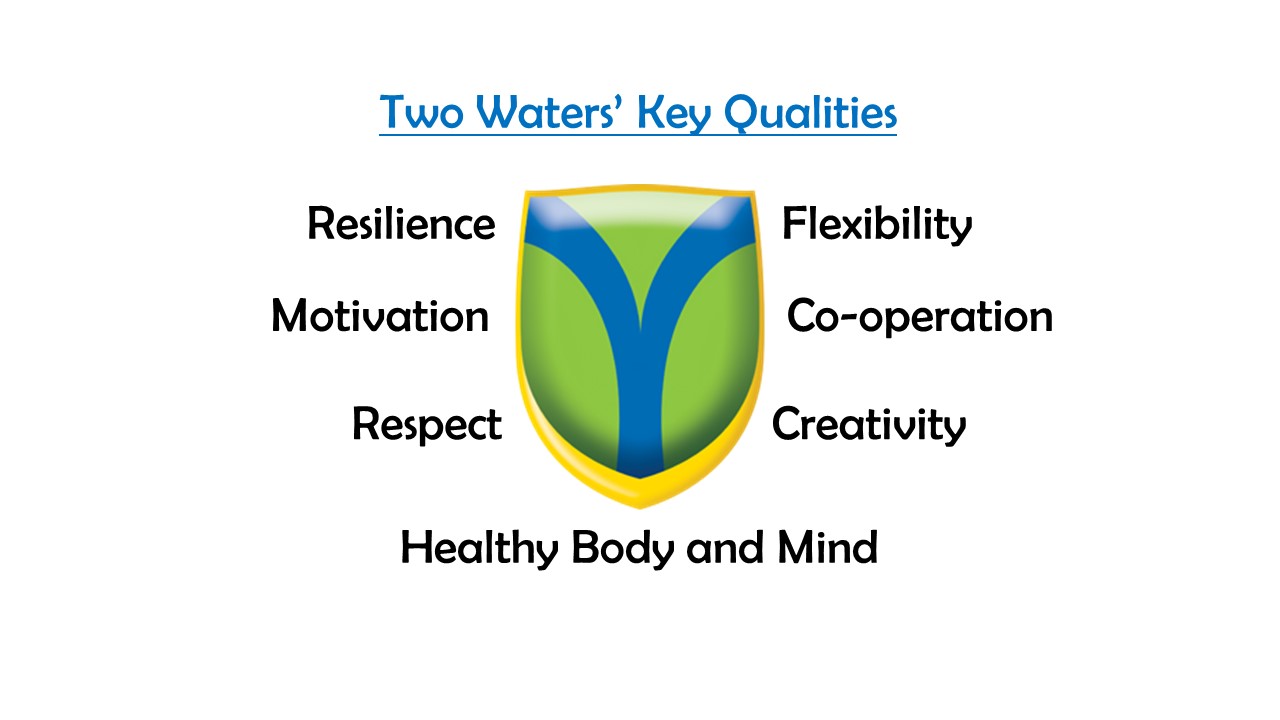Learning
Curriculum Statement
At Two Waters Primary School, we believe that the skills and knowledge that children gain with us prepare them for their next steps in education and their lives beyond, regardless of their starting points. We instill our values in all that we do which is to be
proud to achieve, proud to care.
Context
Two Waters Primary is a one-form entry school with close to 240 children from Nursery to Year 6, most of whom live on the local estate. It is an area of low social deprivation and the majority of children enter the school working at or above age related expectations.
Following recent expansion in the area, which added two further housing developments, we have begun to see more diversity in our intake in terms of cultural, ethnic and religious backgrounds. Thirteen different languages are spoken by children in the school and the experiences and cultural capital of our children has diversified also. The vast majority of our children enter Two Waters in Nursery or Reception and stay with us until the end of Year 6.
Intent
Our aim is to create an experience-based curriculum which is both exciting and challenging. These experiences are underpinned with the knowledge, skills and understanding relevant to each key stage. Our curriculum promotes and fosters our key qualities.

We believe these are the qualities we should embrace to prepare children for the rapidly changing world.
At Two Waters, our children experience a journey of learning from our Nursery class to Year 6 and we have made informed choices about how our curriculum is carefully sequenced to ensure learning builds over time. We ensure we:
- build on prior learning from the children’s previous experiences;
- revisit and rehearse learning to create long term memories and make links across subject disciplines;
- consider when new learning should take place, based on secure assessments;
- create experiences to develop mastery for all while ensuring the more able are challenged to deepen their learning.
- work hard to ensure children from all religious, racial and cultural backgrounds feel reflected in our changing community, our learning and our environment.
It is our strong belief that children with additional needs should experience a rich curriculum which allows them to make progress from their personal starting points and we do all we can to lift barriers to learning and friendships, working closely with families to do so.
The children are at the centre of all we do and their wellbeing is our starting point. We teach our children about self-regulation with tools and language to express and support their feelings. We promote the ideas of Growth Mindset and building resilience to help them understand their role as a life-long learner.
Implementation
Pupils consolidate the Early Learning Goals of the Early Years Foundation Stage Curriculum as they enter Year 1. Our curriculum incorporates the statutory requirements of the National Curriculum 2014 and complies with our duties in the Equality Act 2010 and Special Education Needs and Disabilities Regulations 2014. In some subjects, we have selected published schemes of work which align with our vision and aims. As a staff, we considered the planning and sequencing of our curriculum around 4 main principles:
Subject Discretion
- Each subject is taught as a separate discipline (as opposed to through ‘topics’).
- Children know which subject lesson they are in and the key skills of that subject both within their year group’s learning outcomes and in the broader context of the discipline in the wider world.
Subject sequencing and progression
- By subject, we have explored the National Curriculum content, making links with the Early Years Framework. We have sequenced the National Curriculum requirements after considering how the content’s underlying skills and knowledge can be sequenced for progression. As a result, subject-based skills and knowledge progression documents have been created for each year group / subject strand, to ensure learning is cumulative over time.
The learning journey
- At the core of our thinking is that each child has an eight-year journey through our school which should allow every pupil to engage in rich learning experiences from Nursery to Year 6.
- This is a progressive journey regardless of children's starting points and prepares them for their next steps in education and beyond.
Memorable, long term learning
- We have created an ambitious curriculum which is implemented through an experience-based approach.
- Children are fully engaged and immersed in practical learning which allows them to practice and apply component and composite skills.
- All new learning is anchored to prior learning through teachers’ subject expertise with a deep understanding of the learning journey the children are on.
Impact
Through cycles of monitoring, reviews and reflection, we regularly measure the impact of how we are implementing our curriculum across the school. By returning to our curriculum intentions regularly, we review how closely we are meeting these objectives and identify next steps to improve learning outcomes. Maths, Literacy and Early Reading and Phonics have specific subject leaders who monitor the standards and outcomes of their subject areas across the school and identify whole school and targeted focus areas of improvement.
Our foundation curriculum is monitored by experienced teaching staff. We use monitoring cycles to review our curriculum intentions, identify good practice, review the sequencing and progression of our curriculum and set clear improvement targets.






